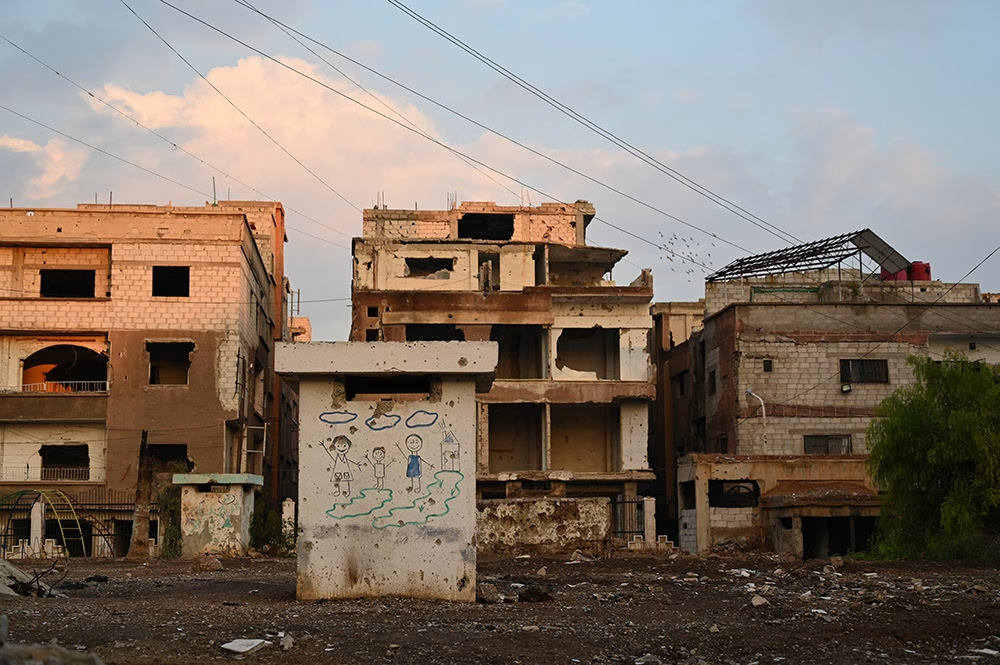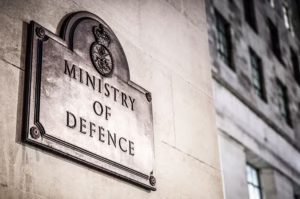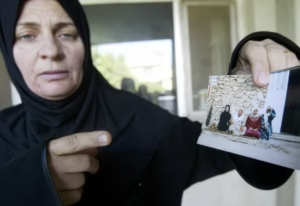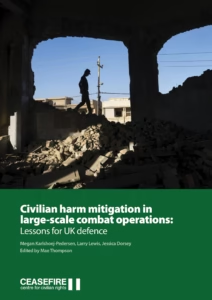In May 2025, nearly six months after the fall of Bashar al-Assad, US President Donald Trump met the new Syrian President, Ahmed al-Sharaa in Riyadh, Saudi Arabia. The first high-level US-Syria meeting in decades, it marked a significant moment in Syria’s political transition, ultimately culminating in the announcement that the US’ 46-year long sanctions on Syria would be lifted.
Amidst these developments, a statement made by a White House spokesperson urging Syria’s new transitional authorities to commit to deporting ‘Palestinian terrorists’ drew little international media attention. However, rights groups, including the Action Group for Palestinians in Syria, have raised concerns about the broad nature of the announcement and the potential implications for displaced Syrian Palestinians. The White House statement failed to specify to whom it was referring with the term ‘terrorists,’ leaving their identity worryingly open to interpretation. For many of the 440,000+ Palestinian refugees who have lived through decades of displacement, surveillance and siege in Syria, the call by the US served as a reminder that political transitions do not automatically bring better protections but often present a host of new threats.
Rather than sidelining these risks as incidental, this moment of change should be understood as an opportunity for the new leadership, alongside the support of the international community, to redress historical injustices. This includes rebuilding destroyed Palestinian neighbourhoods such as Yarmouk in parallel with the rest of Syria, but also fully embedding Palestinian rights in the country’s civic and legal framework. To do otherwise would risk replicating a pattern of abandonment, in which Palestinians’ personhood is repeatedly instrumentalised during conflict and systemically ignored during peacetime.
Historical context: repression behind the rhetoric
For decades, the Syrian government professed unwavering support for the Palestinian cause; in practice, however, this rhetoric masked a long history of coercion indistinguishable from that which characterized the regime’s treatment of the domestic Syrian population. The legal foundation of this conditional solidarity was enshrined in Law 260 of 1956, which granted Palestinians in Syria many of the rights of natural-born citizens, such as access to public education and employment, while withholding the right to citizenship. Although often cited as evidence of Syrian generosity, this framework ensured that Palestinians remained in a permanently precarious situation – politically useful as symbols of Arab resistance yet structurally excluded from full belonging.
Specifically, Hafez al-Assad’s Ba’athist regime systematically suppressed independent Palestinian organizing, with the infamous Palestine Branch of Syria’s military intelligence monitoring and interrogating Palestinians with ruthless efficiency. Later, during the Lebanese Civil War, Syria’s role in the War of the Camps in the late 80s, where Syrian-backed militias laid siege to Palestinian camps controlled by Yasser Arafat’s Fatah, made further evident Assad’s willingness to sacrifice his professed commitment to Palestinian autonomy in service of regional realpolitik.
‘Of all the people from all groups tortured to death in Syria during this period (1983-1986) at least half have been Palestinians… As of summer 1990 Syria held 2,500 Palestinians as political prisoners, including about 2,000 within Syrian territory (the balance presumably in Lebanon).’
– Middle East Watch via Minority Rights Group
Under Bashar al-Assad, these patterns deepened. Throughout the civil war that followed the 2011 Syrian Revolution, regime forces besieged and bombed Palestinian-majority areas, most notoriously Yarmouk refugee camp – once the cultural and political heart of the Palestinian diaspora – leading to mass starvation, displacement, and the deaths of hundreds due to lack of medical care. In July 2020, the Syrian Network for Human Rights (SNHR) reported that over 3,000 Syrian Palestinians had been killed at the hands of the regime since March 2011. It is essential to understand these not as incidental casualties but as evidence of a deliberate policy of collective punishment, treating Palestinian civilians like other Syrian constituencies perceived to be disloyal to the regime and in the process revealing as hollow Assad’s performative support for the Palestinian cause.
Present-day crisis and ambiguity
The departure of the Assad regime marked the end of five decades of authoritarian rule, but not the precarity facing Palestinians in Syria. While, for the first time in many Syrian Palestinians’ living memory, they are no longer under the direct surveillance of the Palestine Branch or factions controlled by Damascus, Palestinians in Syria remain profoundly insecure as the country navigates its transition.
Alongside the widespread destruction of property and essential services across Syria’s urban landscapes, which has had devastating consequences for the population as a whole, the international community must also remain attentive to the potential emergence of a political vacuum within the Syrian Palestinian community. The dismantling of long-standing, albeit often coercive, Palestinian faction institutions risks leaving local politics in areas such as Yarmouk, Handarat and Hama camp dangerously unanchored. In the absence of meaningful Palestinian agency or representation, these camps risk becoming sites of neglect, or worse: renewed militarization.
Furthermore, as previously noted, US calls to deport ‘Palestinian terrorists’ risk legitimizing collective measures that could disproportionately affect thousands of stateless individuals with little legal protection and no viable alternate refuge. In the context of post-conflict transitions, characterized by institutional fragility and gaps in documentation, such language may be used to justify systematic exclusion, including evictions, arbitrary detention and denial of access to reconstruction.
Notably, in Idlib the authorities of Hayat Tahrir al-Sham – President al-Sharaa’s former rebel group – permitted certain Palestinian faction offices to remain operational and tolerated public expressions of solidarity with Gaza after October 2023, including naming a town in Idlib City ‘Gaza Square.’ However, such gestures remain largely symbolic, falling short of any substantive policy framework that guarantees Palestinians the right to remain in Syria, reclaim property, obtain civil documentation or participate meaningfully in public life. It is integral that al-Sharaa’s government goes beyond recognition of the Palestinian cause to implementing tangible rights and protections for Palestinians inside Syria.
To do so, protection should be conceptualized broadly, encompassing not only physical safety, but also access to legal documentation, political participation and formal legal recognition – without which any claim to security remains fundamentally incomplete.
A rights-based path forward
As Syria navigates a new phase of political transition, the treatment of long-displaced Palestinian communities will serve as a key indicator of whether inclusive and rights-based governance is being meaningfully pursued. Crucially, upholding the rights of Palestinians in Syria by ensuring access to documentation, property restitution and legal protection is not only a matter of international obligation but a prerequisite for long-term stability.
Key instruments of international law apply here, most notably, the International Covenant on Civil and Political Rights (ICCPR) and the International Covenant on Economic, Social and Cultural Rights (ICESCR), both ratified by Syria in 1969. These treaties obligate the state to uphold fundamental rights including access to education, employment, healthcare, legal recognition and protection from arbitrary detention without discrimination based on nationality or legal status. For Palestinians in Syria, who often lack full citizenship yet maintain long-standing residency as per Law 260, these covenants affirm their right to inclusion in civil and social life. Implementing the commitment to these standards in the transitional phase would help reduce marginalisation and create the legal clarity essential for enabling Palestinian communities to flourish.
A sustainable transition will prioritise civilian protection and promote equitable participation in rebuilding efforts. Integrating formerly marginalized communities not only rectifies past injustice but also lays the foundation for an inclusive, peaceful Syria.




